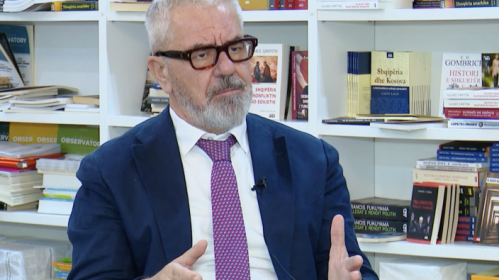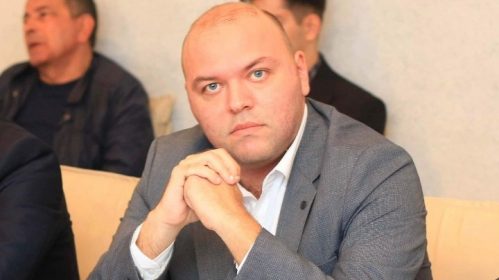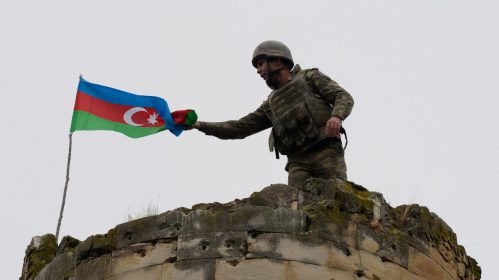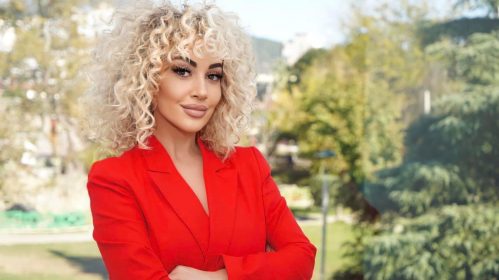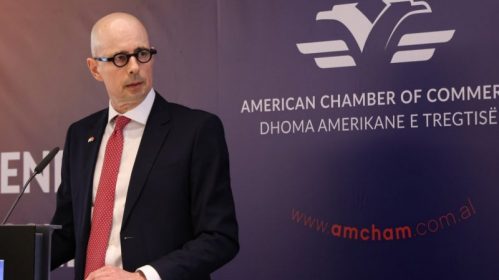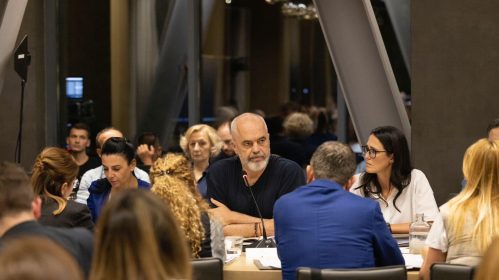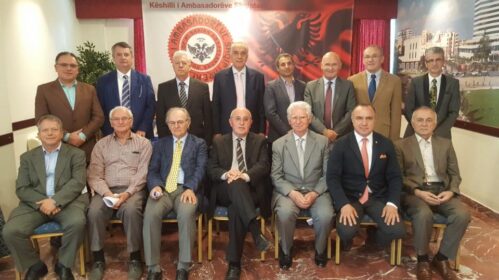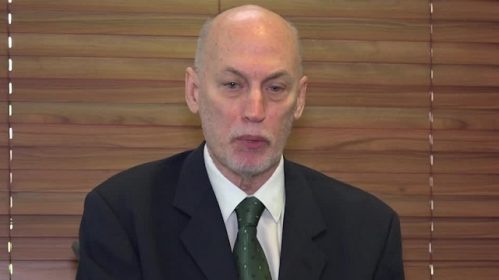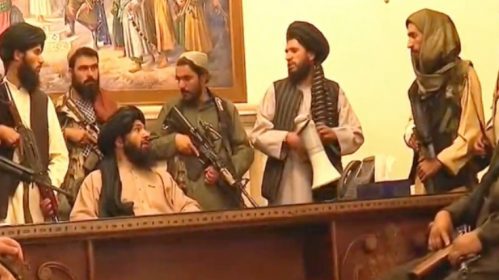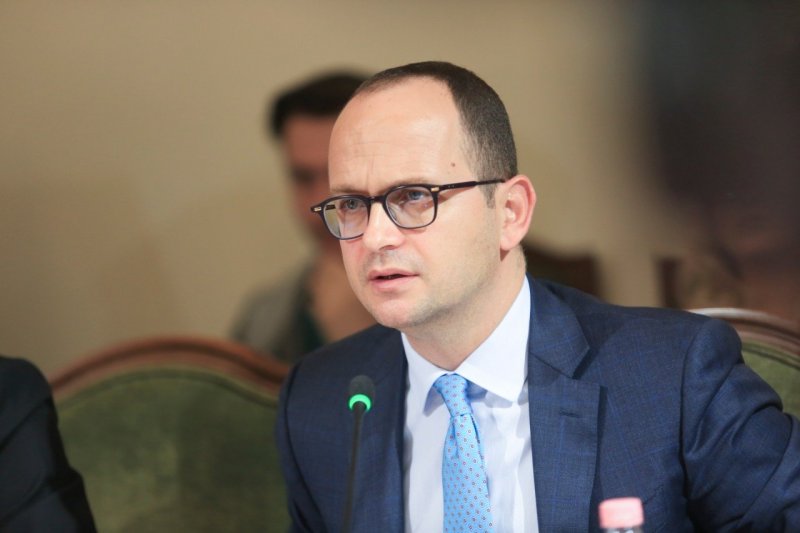
NATO of the Future
Last year’s NATO summit in Madrid adopted the new Strategic Concept, marking the end of the post-Cold War era and the beginning of a new era of tension and confrontation with Russia.

By Ditmir Bushati
If last year’s NATO Summit in Madrid was undeniably historic, as NATO found Europe and allies solidarity among themselves in the face of Putin’s threat, marking a turning point in the biggest improvement in defence capabilities for the Euro-Atlantic alliance since the Cold War, the Vilnius Summit of July 11-12 this year will have a somewhat more complicated legacy. It will be remembered for Sweden’s progress towards NATO, encouragement of Ukraine’s aspirations for membership in the alliance, the most detailed defence plans since the Cold War and the commitment of the G-7 countries to support Ukraine, which each country will define in detail individually.
Last year’s NATO summit in Madrid adopted the new Strategic Concept, marking the end of the post-Cold War era and the beginning of a new era of tension and confrontation with Russia. Meanwhile, the Vilnius Summit focused on a less public but important task, that of implementing the priorities and vision of the Allies outlined a year earlier. The Summit communique contains a number of elements, including how to implement last year’s defence plans, defence spending commitments, more structured global partnerships, especially with the Indo-Pacific countries, as well as an overview of the objectives of next year’s Summit to be held in Washington.
It is known that China was mentioned for the first time at the Madrid Summit as a source of “systemic challenges” for Euro-Atlantic security, even though the alliance does not share a border line with it. China also featured prominently in the Vilnius Summit communique as a “systemic challenge” to NATO. As in Madrid last year, also this year in Vilnius, the Indo-Pacific partners were present, a sign of the importance that NATO gives to this region in the era of strategic competition with China. For NATO, maintaining the status quo with China is important, as a material support by China to Russia could dramatically escalate the current conflict.
In a way, Vilnius can also be read as a summit for the implementation of plans aimed at building the NATO of tomorrow. NATO’s new force model, agreed at the Madrid Summit, strengthens the alliance by providing up to 300,000 troops on high alert, improving responsiveness and leveraging regional expertise. In other words, NATO is being reoriented and restructured to face a more complex and challenging global environment.
Of course this requires more funds. The communiqué of the Vilnius Summit reaffirms the long-standing commitment of the 2014 Wells Summit to spend at least 2% of GDP per year on defence, and calls for strengthening European defence industry and supply chains. It must be admitted that NATO has not yet managed to implement the commitment of “2% of GDP as a floor and not as a ceiling”, as it is ultimately up to the member states to commit to funding at the national level. However, NATO made it clear that to fulfil its role, members must contribute more. The Vilnius summit also reaffirmed the extension of NATO Secretary General Stoltenberg’s mandate. He has led the alliance through a turbulent period during the pandemic, Russia’s invasion of Ukraine, massive increases in military spending across the continent and the admission of four new members to NATO.
BUCHAREST 2.0?
In Vilnius, NATO reaffirmed its support for Ukraine, declaring that “Ukraine’s future is in NATO”, but without taking a step forward compared to the Bucharest Summit of 2008. Ukraine’s hopes for a concrete path towards NATO membership, although they were not fulfilled, did not fade. Comparing the communiqués of Vilnius and Bucharest, it can be said that Kyiv received a “Bucharest 2.0” or perhaps a “Bucharest+”. It has moved closer to NATO, but only slightly. Vilnius was not the last stop on Ukraine’s journey to NATO, but it can be considered a “bridge” between Madrid and next year’s Washington Summit.
Although NATO supports Ukraine’s bid for membership, there is disagreement within the alliance regarding the terms and timeline of its admission. For a significant part of the allies led by the USA and Germany, the process of Ukraine’s membership in NATO is a matter of geopolitical prudence and avoiding a direct conflict with Russia. More or less with the same logic, the establishment of the no-fly zone over Ukraine is also rejected. For Ukraine’s most ardent supporters, especially those geographically closest to the Russian threat, the NATO membership process is a matter of strategic and moral obligation to a people that miraculously and at great human cost is resisting Russia’s war and revanchist ambitions.
Ukraine’s path to NATO membership has gone beyond the need for an Accession Action Plan. This action by NATO is in accordance with the practice followed with Finland and Sweden in the membership process. Since Russia’s illegal annexation of Crimea in 2014, Ukraine has become increasingly interoperable and politically integrated with the alliance. Focusing on the Vilnius Summit communique, NATO foreign ministers will regularly assess Ukraine’s progress through the aligned Annual National Programme. Also, the meeting of the renamed and reconstituted NATO-Ukraine Council in Vilnius, apart from a political message, is a helpful step for Ukraine’s NATO membership process.
In support of Ukraine, the Vilnius Summit approved a multi-year support package, which will help Ukraine rebuild its defense and security sector so that it can defend itself against further aggression. This process is intended to ensure better interoperability between the armed forces of Ukraine and NATO forces. However, it must be admitted that the European allies have “exported” a fragmented arms industry to Ukraine. However, during the 18 months of war, Ukraine has made great strides in the military field, breaking away from the Soviet era. As a result, today Ukraine is more integrated with NATO than ever before.
THE REAL WINNER
If there is a real winner of the Vilnius Summit it is Turkish President Erdogan, who secured concessions from allies and Sweden to expand a free trade agreement between the EU and Turkey. Sweden recently amended its Constitution to enact new anti-terrorism legislation. It agreed to extradite some of the accused Turks from Ankara.
Erdogan’s support for Ukraine, including the sale of military drones, is viewed with sympathy in the West. Erdogan is the only leader within NATO who communicates directly with both the Russian and Ukrainian presidents, which reinforces his unique role within the alliance. His willingness to remove objections to Sweden’s entry into NATO, as he did long ago for Finland, has given him a key position in the Euro-Atlantic space. By supporting the conclusion of NATO’s expansion in northern Europe, which gives NATO a strategic advantage over Russia, Turkey simultaneously reminded Russia that the West is more important to it than Russia.
Through this move, Turkey won a promise to buy F-16 fighter jets from the US. In 2017, Turkey ignored US objections and bought S-400 missile systems from Russia, which was accompanied by sanctions from Washington. Turkey will now buy 80 new F-16 fighter jets from the US, which are considered necessary to upgrade the existing inventory of the Turkish air force.
Erdogan knew that Vilnius was the right moment to extract as many benefits as possible from the West and especially from the USA. The fierce geopolitical competition with China and Russia, the configuration of an important group of states that make up the axis of the so-called “Global South”, which are not aligned with the West in the war taking place in Ukraine, does not give the US the possibility of distancing itself from Turkey, despite public criticism of the state of democracy, fundamental freedoms and human rights.
This is the moment for a greater rapprochement between Turkey and the West. It remains to be seen whether progress will be made in the visa liberalization process with the EU for Turkish citizens and whether Turkey’s EU membership process will be reactivated. Erdogan proved that Turkey is an irreplaceable partner for the West by showing solidarity with Ukraine by signing new defence and reconstruction agreements with President Zelensky and repatriating Ukrainian military commanders being held in Istanbul as part of a prisoner swap deal with Russia. These actions angered the Kremlin. However, Erdogan is well aware that with an unstable Russia on his doorstep and a troubled economy at home, Turkey needs better relations with the West. Moreover, through this rapprochement, the possibility is created that Turkey will not only be more aligned in relation to Ukraine, but also oppose Russia in Syria and the Black Sea, which is not too little for the West
75TH ANNIVERSARY OF THE ALLIANCE
Next year’s summit in Washington coincides with the alliance’s 75th anniversary. For this reason, the North Atlantic Council has taken on the task of starting a more comprehensive and deep reflection on threats, challenges, as well as opportunities for engagement with partner countries, which will be presented at the Washington Summit.
Concerns about a revanchist Russia, as well as an expansionist China in military and technological terms, are expected to keep NATO engaged under the leadership of the USA. Europe is on the same page as the US in recognizing the challenge China presents. But for Europe to be able to defend itself better and not depend only on American support, it must invest serious resources in defence.
Russia is a relatively small economy on which Europe was largely dependent for just over a third of its oil and gas needs. The sudden replacement of these supplies due to the war in Ukraine has reduced economic growth, caused a spike in inflation and delayed Europe’s recovery from the pandemic. A sudden disengagement from China would be more expensive, because Europe is more dependent on China than it was on Russia before the outbreak of the war in Ukraine.
China is the largest source of imported goods for the EU and at the same time the main destination of European exports. The combination of buying more expensive natural gas from the US or the Persian Gulf countries with the loss of access to China’s lucrative market for cars and luxury goods could cause major damage to the European economy.
Europe’s post-Cold War dream of an “eternal peace” has been erased as a result of the wars in the former Yugoslavia and those in the east of the continent. Its future security, strength and prosperity now depend on whether and how quickly it acts to address weaknesses, as the scale of the challenge is beyond the capabilities of any single European country acting alone. Europe can become strategically important and more integrated by interacting with the US.
Seen from this context, the Washington Summit next year will further clarify the allies’ views on the above issues, preparing NATO to face the challenges of an increasingly complex world, and at the same time be able to overcome the questions left unanswered in Vilnius.





